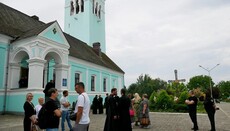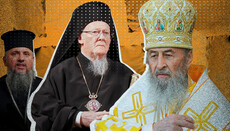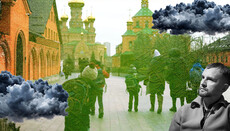Dura lex sed lex: what is Catholic fundamentalism?
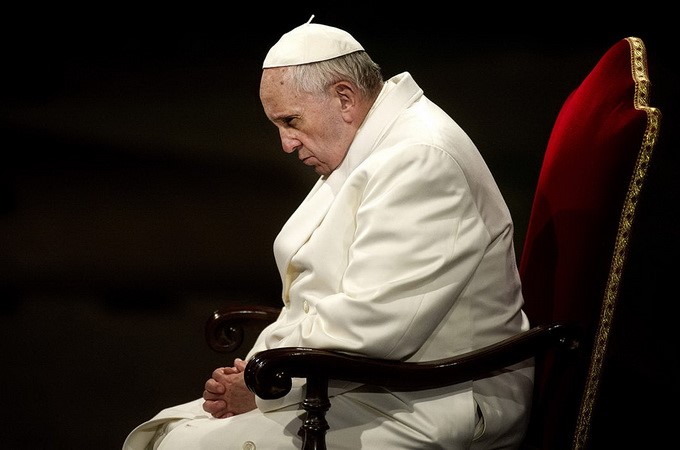
Orthodoxy has never been notable for its rigorous approach to the human personality in terms of confession: Orthodox Church perceives a human being as a value regardless his/her confession or its absence. God created man in His image and likeness. You will never find a single reference in the patristic literature to the direct or indirect link between value of a human and his/her faith. However, personality and salvation of personality is not the same thing. Salvation is possible solely within the true Church being mysteriously an embodiment of Jesus Christ.
There have been plenty of cries of admiration addressed to the Roman-Catholic Church and the Pope recently, in particular, among the people who formally associate themselves with the Orthodox Church, as well as theologians, seminary graduates, etc. The author of this article is by no means driven by “confessional jealousy”, but feels disturbed, like any sensible person, by the cause of such resonance, dating back to the time when Francis was elected Pope. Not so long ago – in the light of the milestone meeting of the Roman Pontiff and the Patriarch of Moscow – the Internet teemed with comparative analyses of the Catholic leader and Orthodox Primate – head of the canonical Christ’s Church – apparently not in favor of the latter. As it is often the case, such snap judgments and “religious sensation” are usually produced by ordinary believers, who basically lack knowledge in Orthodox ecclesiology. Man as a fallen creature with distorted nature is subject to deceit at the level of instincts. We all hear what we want to hear and we see the things in the same way.
A well-established myth about liberalism of Catholicism and conservatism of Orthodoxy is shattered against the stones of fundamental knowledge of dogmata in both denominations, which involves getting to know inside out when learning about the parish life.
Why is the Second Vatican Council of 1962-1965 often set as exemplary in church reforms? Isn’t it because this Council per se is an illusion of reforms, couched in council terms, whose source of lawfulness is the Pope, rather than the Council? According to Archdeacon Andrey Kurayev all documents of the Second Vatican Council are “penetrated with monarchic spirit”, while all its “revolutionary” definitions are a century-long path in the Orthodox practice. The Orthodox Ecumenical Church in this respect can be called a benchmark of the church democracy, since catholicity (conciliarity) is a momentum for the Church to help her self-actualize responding to current challenges, being led solely by Jesus Christ the Savior. Servile church mentality is a distinctive feature of Catholicism and, apparently, oversaturated with the spirit of freedom paid by God (“for a payment has been made for you” (1 Corinthians 6:20), a human as a slave wishes to find a master to himself in face of another human being, forgetting about the fact that the Lord came to this earth to serve humans and make them equal to Himself like friends.
We all have heard about such phenomenon as a “church tax” levied from the faithful at whose cost the clergy of the RCC receive their salaries. But behind it there are some facts far from being known to the public, which present catholic discipline as preaching love and freedom, but actually not having them. For over five years a church decision, approved by the court, has been in force that any person, who refuses to pay the tax but believes himself a church member, is anathematized. In other words, if you refuse to donate, you will be deprived of the Church Sacraments till you die or pay the due sum of money. Apparently, advocates of such practice make out an invoice not only for joining the church community, but also for the possibility to share the fruits of atonement. Five hundred years are over, but the Reformation period has been futile. The notion of indulgence is inextricably connected with Catholicism: it has just taken on new shapes and hues.
State-funded salaries of Catholic priests and church tax are a Pandora’s Box and bondage of corruption Catholicism is voluntarily into. In fact, being directly dependent on the state budget, Catholic Church has no choice but fulfill any foibles of the state. In the long term same-sex marriages, practiced in Protestantism and pursued by Catholicism, might be legitimate in Catholic community, as it can be seen in Spain, where each fourth Catholic believer stands for such practice (survey of the “Voice of the people”). In other words, he who pays the piper calls the tune. .
The marriage issue is a particular matter in Catholicism. Orthodox Church urges its faithful to an ideal of the family as a small church; it disapproves an ever-growing amount of divorces among church-wedded orthodox families, yet somebody’s life is his/her life. The Church cannot force a human and such sensitive issues are resolved with the help of a bishop/an archbishop who can bless another marriage taking into account all the circumstances. Dissolution of marriage is highly undesirable with orthodoxy, though it is legitimate, which is enshrined in the ROC Fundamentals of Social Concept. In Catholicism similar issues are resolved by Vatican and the Pope personally. An archbishop has no right to make his decision on the matter, though with the appointment of Francis de-jure decentralization is under way and gaining momentum. From the catholic point of view divorce means recognition of one’s marriage as invalid; in other words, people can live together for a certain period of time and then the Church can recognize their marriage to be “nonexistent in reality”. On the surface is a scholastic and rational approach to the needs of people, canons having been pushed to the last place.
Conservatism of Catholicism reveals itself with regard to Hi-Tech. Only ten years ago the Pope Benedict XVI issued a directive that allowed officially catholic clergymen to use mobile phones. In a number of Catholic theological schools it is forbidden for students to use phones (and computers) till they graduate.
Spiritual education in the Roman Catholic Church is curious for the fact that as recently as 50 years ago there began an exit from isolation when Catholic priests used to live just performing occasional church offices, being fully isolated from the real world. Until now there exists a practice for seminary students to walk in pairs: putting aside pietistic reasoning, it is done in order to whistle-blow sins of your brother to the administration and train your “ego”, which by the graduation time turns into the “purpose of service”. Yet there can be exceptions, no doubts. Any seminarian of Orthodox school of theology would spot a sharp contrast in practices, since he has got not only “me-time” (at the same time he must remember about his calling), but also technical paradise. All scientific works and semester essays are to be computer-aided, and there is an abundance of spiritual literature available to them in an electronic format.
A recent occurrence, highlighted by mass media, was also notable when the Pope had visited former priests who being frocked, chose to have families. The point is that people of this category usually face a number of difficulties. The first one – departure of such priest is strictly regulated by Vatican: basically, he may be not allowed to leave. Quite often priests have to wait for years to receive this blessing. Even when the decision is positive, it’s too early to feel positive about it: such clergymen are not allowed to have the Communion. Contrary to the spirit of Christian attitude, such people are hallmarked by isolation and grave sin. From the standpoint of Catholic law and traditions, the above gesture of Pope Francis is akin to the visit of the president to the “provincial” zoo – in essence, it appears exactly so in the eyes of the Holy See.
As for the liberalism of Catholicism, it does take place. It primarily concerns American type of Catholicism and is common for missionary outreach and preaching.
Catholicism actually preaches God’s grace but limited only to this. You will hardly hear sermons about Judgment of Christ, responsibility before God and afterlife retaliation. God is Love indeed, but the Love which does not turn a blind eye to sin; the Love which preaches Christ on the Cross, rather than without it. Catholic theology will inevitably come across the paradox of Love and the Day of the Judgment and will get stuck there, since this is a dilemma in the scholastic plane, not possible to resolve. So, one is better off preaching Love and not bothering on what it really is according to the Logos. Perhaps, de-facto conservatism of Catholicism and its liberal sermons reveal obvious cognitive dissonance within the Catholic mindset, when parishioners and laymen live their own secular life, integrating nominally around the monarch personality – the Pope.
Meanwhile for the ambience of pseudo-Orthodox Christians words of St. Paul are coming true: “For the time will come when men will not tolerate sound doctrine, but with itching ears they will gather around themselves teachers to suit their own desires” (2 Timothy 4:3). And we see what we want to see and hear what we want to hear and what is actually not true – for it’s a special pleasure to be deceived, besides, “errare humanum est” (to err is human). I feel like wishing to the faithful neither to search for alternatives to the Ecumenical Church nor to fall for novelties, which intrinsically are not new at all. Instead one should compare what I was like yesterday and what I am like today: how closer have I approached Christ as my Ideal and my Savior?
0
0
If you notice an error, select the required text and press Ctrl+Enter or Submit an error to report it to the editors.
Read also
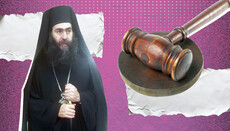
Bishop and secular justice
16 January 17:29
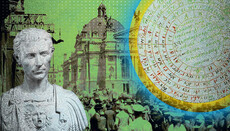
Why Lviv residents once defended “Muscovite” Christmas
15 January 13:55







